Nobel laureate Alfvén’s visionary portrayal of computers in the distant future is now an opera
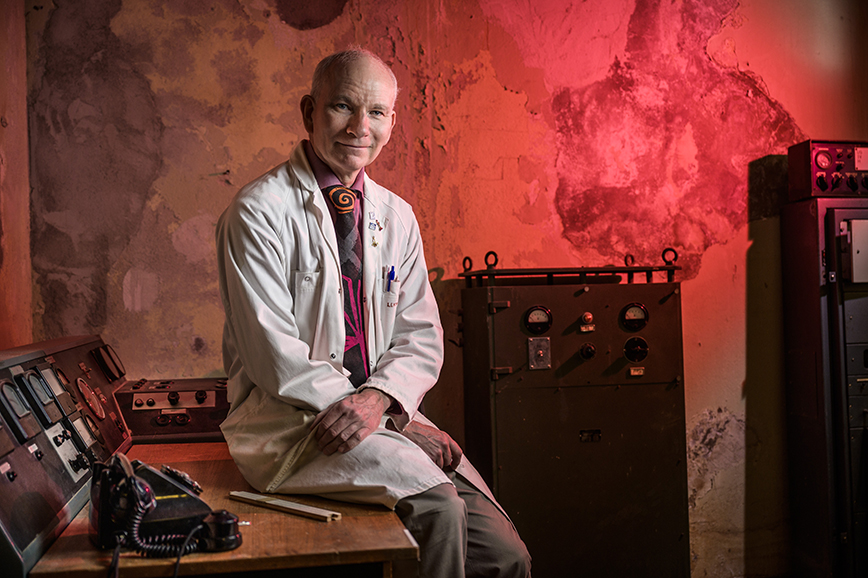
In 1966, “The Tale of the Big Computer” by Hannes Alfvén, a Nobel Laureate and former professor in Physics at KTH, was published. In a co-production with Stiftelsen Vadstena-Akademien, KTH is staging an opera based in the book. The opera will open on an experimental stage in Reactor Hall R1 in December, with the title “The Tale of the Great Computing Machine”. Artistic couple Åsa and Carl Unander-Scharin were given the prestigious assignment to create this new opera.
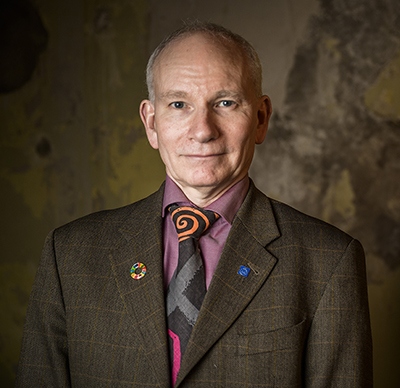
“We want to show that KTH as a University of Technology can also create culture. It’s really a good feeling to be able to do this while also paying homage to KTH’s Nobel Prize winner Hannes Alfvén,” says Leif Handberg , Associate Professor in Media Technology at KTH and Director of the KTH Reactor Hall, R1.
“The Tale of the Big Computer” was originally intended as a bedtime story for Alfvén’s grandchildren. In the book, the 1970 Nobel Laureate in Physics depicts a future, where humans are reduced to an evolutionary step on the road to a wise and all-knowing computer.
“In the book, which has gone on to become a cult classic in Silicon Valley, Alfvén foresees a great many of the technological developments that are impacting us humans to a high degree today,” Handberg says.
It´s about the meeting between man and machine
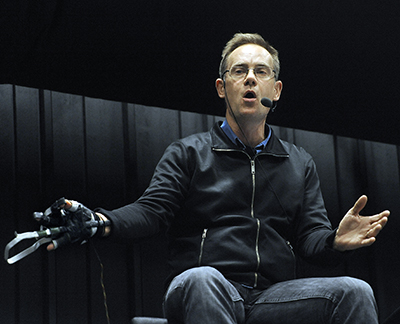
“The opera concerns humans, artificial intelligence and what it means to be human if we let go and leave everything to computer systems and what we today call artificial intelligence,” say Carl who have created and orchestrated “The Tale of the Great Computing Machine”, together with his wife Åsa Unander-Scharin.
“Artificial intelligence, or robot brains as this was called in the 1960s, can be used for both good and evil. The new opera raises existential questions about the role of humans in a future where everything has been transferred to artificial intelligence. It asks, where could we be heading if we don’t think this through?”
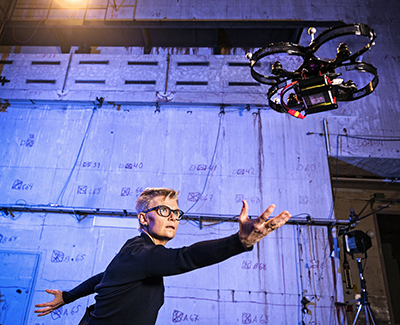
Åsa and Carl Unander-Scharin were commissioned to create an opera based on Alvén’s book. They are responsible for the music, libretto, choreography and direction, and not least, the new technologies that are part of the work. Carl Unander-Scharin is an opera singer and composer, who defended his PhD at KTH, and is Visiting Professor in Opera and Voice at Karlstad University. Åsa Unander-Scharin is a choreographer and a Professor in the Division of Music, Media and Theatre at Luleå University of Technology (LTU). She received her PhD in Musical Performance (LTU) for her doctoral thesis: Human Mechanics and Soulful Machines. Åsa and CarlThe two have several roles in this production: authors of a new libretto, the musical composition, choreography and direction.
The entire Reactor Hall is the stage
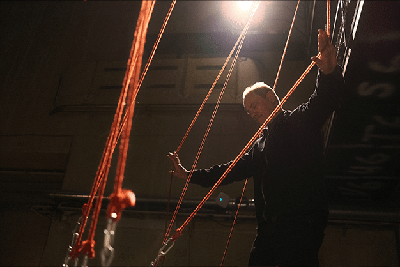
The whole of the Reactor Hall will be used as a stage where the audience can see and hear four opera singers, five instrumentalists, a dancer, plus a pre-recorded opera singer, who is the voice from the future. Åsa Unander-Scharin says that new artistic technology has been developed for the work. This includes connecting in the old organ from the Skandia Cinema that is now in the Reactor Hall.
“We have created an instrument whereby different pipes, registers and sound effects, can be played via specially designed rings on your fingers. The organ will be an organism that you can play on in the air,” Åsa Unander-Scharin says.
“To portray the time symbiosis and computer art, computer poetry and computer music, we have developed interactive and responsive technologies such as “The Vocal Chorder”. By stretching and tightening, leaning and hanging on the chords, the singers create accompaniments to their song,” she says.
Vadstena-Akademienproduces the opera
Production of the opera is in the hands of Stiftelsen Vadstena-Akademien, that has produced a series of operas since 1964, both new works and older, forgotten works. Terese Lindström, a producer at Vadstena-Akademien is coordinating the different parts of the project and has made sure that KTH and Vadstena-Akademien have got to know the way they each work and communicate, plan and budget, to enable as much of the project vision as possible to be realised with high quality.
“It feels fantastic to collaborate with KTH, when it comes to this absolutely special location, the resources and know-how. The project is developing both our organisations and bringing new artistic forms of expression and narrative, through and about the meeting between humans and technology,” she says.
“The Tale of the Great Computing Machine” is scheduled for 17 performances with the opening night on 1 December.
For more information about the production, go to the opera website.
Håkan Soold
